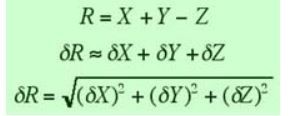Definition And Calculation Of Error Propagation In Statistics

I am an 8th std. Student and I encountered an error with some uncertainty, and I am having difficulty in calculating that. How to calculate the error propagation in the experiments or statistics problems?













